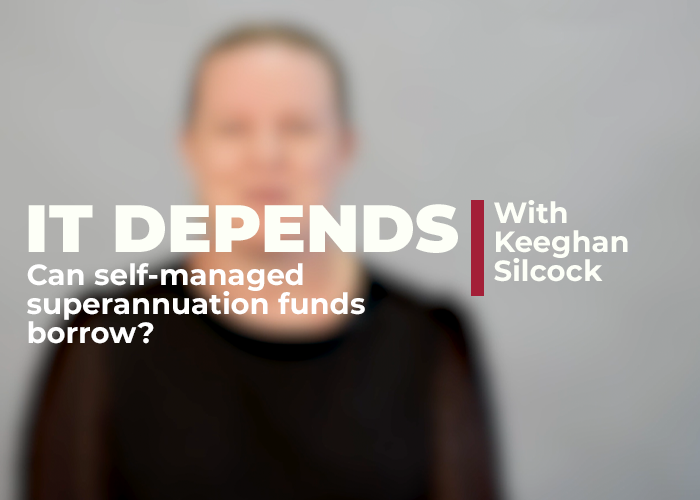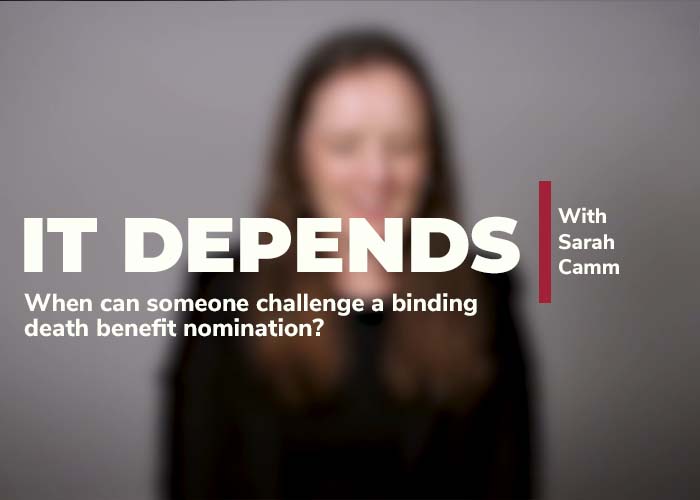In this edition of ‘It depends’, associate Keeghan Silcock talks about whether self-managed super funds can borrow.
VIDEO TRANSCRIPT
Hi, and welcome to another edition of It Depends. Today, I’ll be going through whether self-managed super funds can borrow.
Can self-managed superannuation funds borrow?
It depends. The starting point is that there is a general prohibition against SMSFs from borrowing money. However, there are some exceptions to that rule, and that depends on the asset that the SMSF is looking to acquire and the structure of the proposed borrowing generally.
Limited recourse borrowing arrangements
One of the main exceptions that you see to that prohibition against borrowing is the use of what is known as a limited recourse borrowing arrangement. That’s where there is a bare trust, which is set up in accordance with specific rules. And the bare trust acquires property on behalf of that self-managed super fund. The self-managed super fund borrows and the lender takes security over the asset that has been acquired by that bare trust and importantly, that security is limited to that asset and does not extend to any of the other assets of the fund. Again, there are many technical requirements that need to be satisfied in order for this to be a complying, limited recourse borrowing arrangement. Otherwise, the borrowing by that self-managed super fund could cause compliance, duty and tax issues. So, we recommend you get advice from the outset.
Unrelated unit trusts
Another exception to the rule against borrowing by self-managed super funds is if that borrowing is done through what is known as an unrelated unit trust structure. This is where we set up a fixed unit trust, and the self-managed super fund can be one of the unit holders in that unit trust. However, importantly, the self-managed super fund can only own 50 percent or less of the units in that unit trust, and it cannot otherwise control that unit trust. The other 50 percent can be held by unrelated parties to the SMSF, its members and those member’s related parties. And they also need to equally control that unit trust. If that unit trust is set up correctly, then it’s possible for the unit trust to go out and borrow. So, if you have any clients who are looking to borrow within their self-managed super fund, there are some potential options that might be available to them. It’s important that they seek advice on what option is best for them.
If we can assist with this, please feel free to contact a member of our team.





